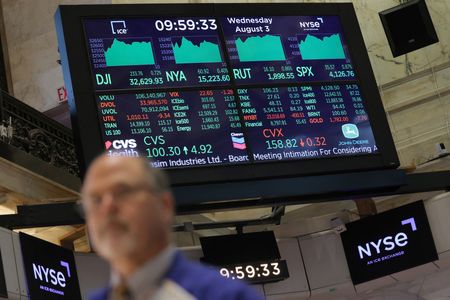(Reuters) – U.S. equities have priced in the most recession risk compared with other assets, Citigroup researchers said, warning that was not enough as further losses loom in the wake of an “unusual” time for economies.
The benchmark S&P 500 index is firmly in bear market, down about 22% year-to-date, as investors worried over rising interest rates, record inflation and the lingering impact of global-supply chain snags turned risk averse.
“No asset class is over pricing the recession risk. But in relative terms, U.S. equities have the most recession risk priced in,” a Citigroup team led by Alex Saunders said in a note dated Tuesday, adding earnings estimates had more to adjust.
Analysts now expect quarterly earnings growth for S&P 500 companies of just 2.8% from a year ago, much lower than an 11.1% increase expected at the start of July, according to Refinitiv data.
Still, some gauges of the U.S. stock market that flashed warnings throughout the year ahead are more positive, while the S&P 500’s recent pattern of big upside moves echoes those seen in prior market bottoms.
Citigroup said earlier this month that it was expecting global equities to rise about 18% from now through the end of 2023.
U.S. bonds had priced the least risk of a recession, the Wall Street bank said.
“Bonds may have to wait for longer this time around to price recession risk given that the Fed will remain hawkish for longer than typical,” the team wrote.
Industrials and financials are not factoring in enough recession risk among sectors, Citigroup said, with consumer discretionary the least risk priced in.
(Reporting by Siddarth S and Pushkala Aripaka in Bengaluru; Editing by Sriraj Kalluvila)

